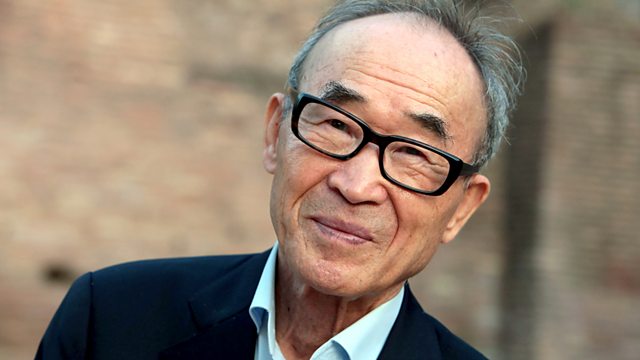
Ko Un: The People's Poet of Korea
Mike Greenwood reports from South Korea on how the poetry of the country's national poet, Ko Un, weaves a grand mosaic of Korean history and society.
In South Korea, former Zen monk Ko Un is revered as a pro-democracy activist and the people's poet. To mark his 80th birthday, Mike Greenwood explores his prolific output, in particular his epic masterwork, Ten Thousand Lives (Maninbo), in which he puts into poems the faces and lives of all the people he has known or known of. Conceived when he was imprisoned in the 1980s for rebelling against the military dictatorships then controlling South Korea, Maninbo has been published in 30 volumes in Korean. Now, for the first time, the first 10 volumes have been translated into English.
We use readings from this treasure box of poems to provide a unique window on to modern Korea, with contributions from Andrew Motion and Ko Un himself, three-times Nobel Prize for Literature runner up. "Poetry" he says, "is the music of history."
Ko Un has given us special access to his home near Seoul where, in a series of intimate interviews, he shares his story.
Born into a peasant family in 1933, Ko Un began writing poems from an early age. Traumatised by the horrors of the Korean war, he became a monk. After leaving the Buddhist community in 1962, another lost decade of despair followed, including problems with alcohol and multiple suicide attempts. After a profound political awakening in 1972, he joined in vigorous opposition to the military regime and in the struggle for human rights. He was detained, tortured, and imprisoned repeatedly and for long periods. Finally set free in 1980, Ko Un married, moved to the countryside, fathered a daughter, and entered a period of stability and happiness, though it would be more than a decade before he was granted a passport.
Producer: Eve Streeter
A Pier production for Βι¶ΉΤΌΕΔ Radio 4.
Last on
Broadcasts
- Sun 29 Dec 2013 16:30Βι¶ΉΤΌΕΔ Radio 4
- Sat 4 Jan 2014 23:30Βι¶ΉΤΌΕΔ Radio 4 FM
